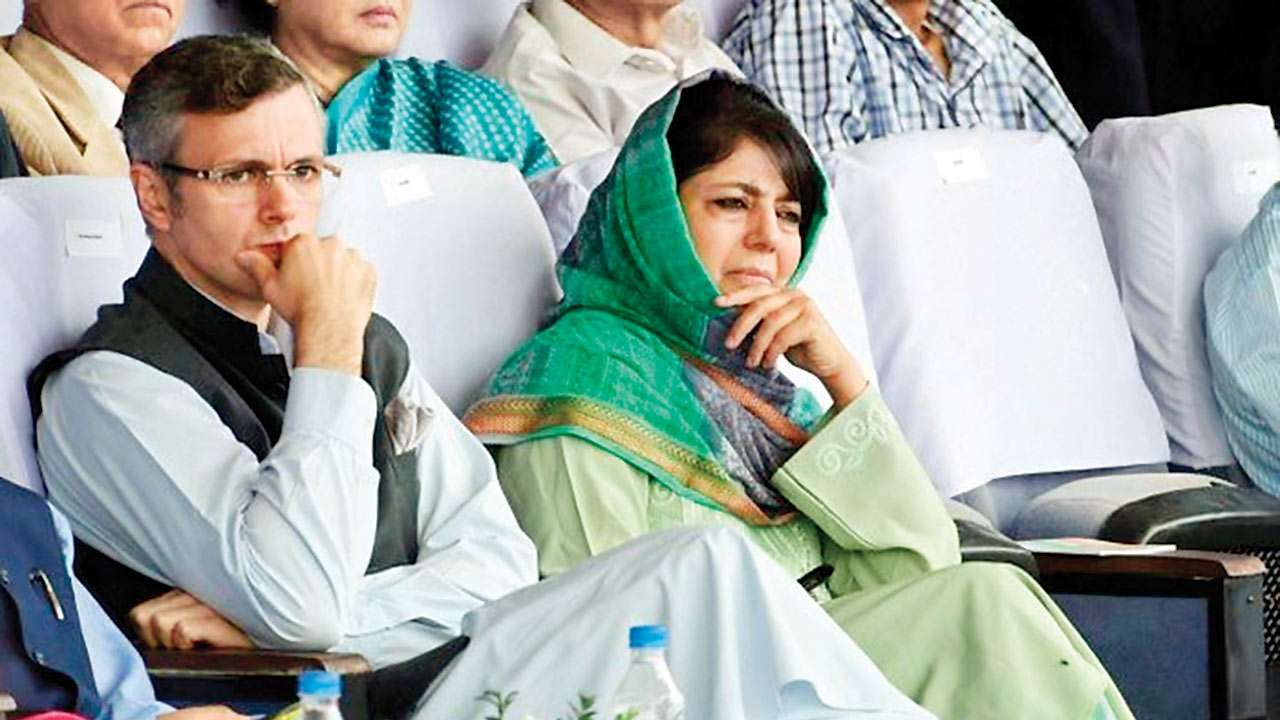
Article 370, which granted special status to the state of Jammu and Kashmir (J&K), has been removed by a Presidential Order.
Home Minister Amit Shah also presented a J&K Reorganisation Bill, through which the state has been bifurcated into two Union Territories — Jammu and Kashmir, and Ladakh. With this, Article 35A has also been annulled, which was discriminatory against non-residents and women of J&K.
With bigger mandate come bigger expectations. The right-wing supporters of BJP and RSS expected the Modi 2.0 government to walk the talk on Uniform Civil Code, Article 370, Article 35A, Ram Temple, Hindu rashtra, and other ideological issues. Through this, the BJP has fulfilled one of its long-standing promise.
In its 2019 poll manifesto, it had mentioned, “We reiterate our position since the time of the Jan Sangh to the abrogation of Article 370.” Through this act, it consolidates its core vote bank, who have stood by the party through thick and thin. It establishes the one nation, one constitution principle.
As BJP MP Swapan Dasgupta put it in Rajya Sabha, the repeal of Article 370 establishes the political sovereignty of the Indian Parliament to whole of India without making any exception for J&K.
The stunned opposition was clueless and ill-prepared despite these rumours doing the rounds for the last few days. Congress leader P Chidambaram called the move a “constitutional monstrosity” and warned other states against “future moves to dismember them”.
The move has the potential of making local political parties irrelevant. The National Conference (NC) and People’s Democratic Party (PDP) have opposed the move. The Abdullahs and Muftis (dynasts) have been ruling the state for decades since Independence and exploited the local sentiments for their political benefit.
On expected lines, Omar Abdullah termed the decision as disastrous, illegal and unconstitutional. He alleged that the Government of India resorted to deceit and stealth and this is an aggression on the people of J&K.
Mehbooba Mufti, meanwhile, termed it as the darkest day in Indian democracy. She slammed the unilateral decision of the Government of India to scrap Article 370, which will make India an occupational force in J&K.
Both these leaders have been put under house arrest. PDP has been accused of being soft on separatists even during the brief rule of PDP-BJP combine in the state. There is a risk that since the PDP and NC face an existential threat, they could join hands with separatist groups to fan unrest in the Valley. It could also force the two Valley parties to form an alliance in state elections to take on the BJP.
Many critics feel that politically this move amounts to an assault on the Muslim identity of J&K. The RSS has always believed that the only way to resolve Kashmir issue is through a sweeping demographic change in the state, facilitated by the integration of the Valley with the rest of country.
Political parties across the spectrum, including the BSP, BJD, YSRCP, AAP, TRS and the TDP supported the repeal of Article 370. It is a good sign for the Indian democracy and highlights the fact that on issues of national interest, parties cutting across political spectrum and irrespective of ideology, can come together and work unitedly. Arvind Kejriwal hoped it would bring peace in the Kashmir Valley.
JD (U)’s opposition, though, is a cause of concern for the BJP, especially with the Bihar Assembly elections due next year. The party earlier opposed the Triple Talaq Bill as well. JD (U) is not part of the Union Cabinet and shares a love-hate relationship with the BJP. There are also rumours that Nitish could go back to Lalu’s RJD, which could weaken BJP’s chances in Bihar. After reorganisation, de-limitation could be the next thing that the BJP comes up with. Kashmir has 46, Jammu 37 and Ladakh four seats, implying that the party securing a majority in the Valley has been dominating the political scene in the state.
The people of Jammu and Ladakh have for years, alleged discrimination and lack of development. In terms of area as well as voter population per seat, Jammu is much bigger compared to the Kashmir Valley.
As per reports, de-limitation could increase seats of Jammu by 10-15, bringing it at least on par with Kashmir. Reservation of seats for the SC/ST community is also likely to be introduced.
BJP hopes to sweep the Jammu region, as and when elections are held, and instal a first non-Kashmiri and Hindu chief minister in the state. Even if PDP and NC join forces and win the elections, the issue is that the chief minister of a Union Territory doesn’t enjoy the same powers as other states. In Delhi, Kejriwal has been fighting for absolute powers and alleging how the BJP has been meddling in the affairs of the state through the Lieutenant Governor. So, the old days of Abdullahs and Muftis may never return. The BJP at the Centre will have the reins of power of the state.
In the recent past, the BJP has got UAPA/RTI Amendment Bill and the Triple Talaq Bill passed in the House of Elders despite not having majority. The J&K Reorganisation Bill was introduced first in Rajya Sabha and not in Lok Sabha. This reflects the BJP’s confidence after winning a brute majority in May, using far superior floor management skills.
It also shows that India is now not only Congress-mukt, but also opposition-mukt. The BJP has now occupied the dominant position once held by the Congress in India’s political space.
Now, over to courts as the decision is likely to be challenged!
Author is a political analyst